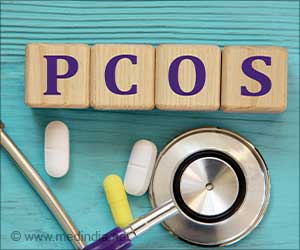- Explore the power of herbal supplements like Maca Root and Ashwagandha, providing a holistic approach to managing PCOS symptoms and promoting overall well-being
- Know about the benefits of herbs such as Holy Basil, Licorice Root, and Chasteberry, which balance cortisol levels and alleviate the stress associated with PCOS //
- Understand the role of probiotics in reducing inflammation and regulating sex hormones, providing a comprehensive approach to PCOS management through improved gut health
Herbs as a Source for the Treatment of Polycystic Ovarian Syndrome: A Systematic Review
Go to source).
Herbs for PCOS
Maca Root:
With a rich history in traditional medicine, maca root is celebrated for its ability to boost fertility, balance hormones, and lower cortisol levels. Positioned as an adaptogen herb, maca root provides a natural and holistic approach to addressing hormonal imbalances associated with PCOS. Dosage: 1,500-3,000 mg per day.Best Time to Take: With meals or as directed by a healthcare professional.
Ashwagandha:
Also known as "Indian ginseng," ashwagandha is recognized for its adaptogenic properties, helping balance cortisol levels and potentially improving stress and PCOS symptoms. With its roots deeply embedded in Ayurvedic medicine, ashwagandha offers a holistic approach to women seeking emotional and hormonal balance.Dosage: 300-500 mg per day.
Mechanism: Ashwagandha helps balance cortisol levels, potentially improving stress and PCOS symptoms.
Holy Basil:
Revered as the "queen of herbs" in Ayurvedic medicine, holy basil addresses chemical and metabolic stress. With potential benefits in reducing blood sugar, preventing weight gain, and lowering cortisol levels, holy basil provides a multifaceted approach to managing PCOS.Mechanism: Addresses chemical and metabolic stress, aiding in blood sugar reduction, weight control, and cortisol level lowering.
Best Time to Take: With meals.
Licorice Root:
Derived from the licorice plant, licorice root contains glycyrrhizin, known for its anti-inflammatory properties. Suggested to help metabolize sugar and balance hormones, licorice root presents itself as a potential ally in addressing key aspects of PCOS.Dosage: 200-400 mg per day.
Mechanism: Contains glycyrrhizin, suggested as an anti-inflammatory agent that helps metabolize sugar and balance hormones.
Best Time to Take: Typically with meals.
Tribulus Terrestris:
Acknowledged for its ability to stimulate ovulation and support healthy menstruation, Tribulus terrestris holds promise as a herbal supplement for women with PCOS. With its roots in traditional medicine, this herb offers a natural approach to optimizing reproductive health.Dosage: 85-250 mg per day.
Mechanism: Shown to stimulate ovulation, support healthy menstruation, and decrease ovarian cysts.
Best Time to Take: With meals.
Chasteberry:
With a history spanning centuries of traditional use for reproductive conditions, chaste berry is recognized for its potential to improve PMS symptoms. Positioned as a natural remedy, chaste berry offers women with PCOS a holistic approach to managing hormonal imbalances.Dosage: 20-40 mg per day.
Mechanism: Traditional use for reproductive conditions, potentially improving PMS symptoms.
Best Time to Take: Usually with meals.
Probiotics:
Beyond their well-known benefits for gut health, probiotics play a crucial role in treating PCOS. By reducing inflammation and regulating sex hormones like androgen and estrogen, probiotics offer a comprehensive approach to managing PCOS symptoms. Whether through supplements or probiotic-rich foods, their inclusion in a PCOS management plan is increasingly recognized.Dosage: Follow product recommendations.
Mechanism: Support gut health, reduce inflammation, and regulate sex hormones like androgen and estrogen.
Best Time to Take: With or without meals, as directed.
As we conclude this overview of herbs for PCOS, it becomes evident that nature provides a rich repertoire of remedies to complement conventional treatments. Maca Root, Ashwagandha, Holy Basil, Licorice Root, Tribulus Terrestris, Chasteberry, and Probiotics each bring unique mechanisms and benefits to the table. Whether aiming to balance hormones, reduce stress, or support reproductive health, these herbs showcase the diverse tools available for those on the journey to managing PCOS. It is crucial, however, to approach these supplements with guidance from healthcare professionals, ensuring a tailored and safe integration into individualized PCOS management plans.
Disclaimer: The information provided herein is for educational purposes and general guidance only. Consult with a qualified healthcare professional before initiating any herbal or dietary supplement regimen, especially if pregnant, nursing, or undergoing medical treatment.
Reference:
- Herbs as a Source for the Treatment of Polycystic Ovarian Syndrome: A Systematic Review - (https://www.ncbi.nlm.nih.gov/pmc/articles/PMC9844343/)
Source-Medindia












